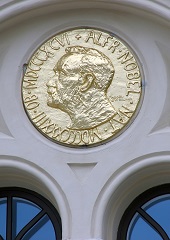Is ISIS Islamic?
Every religion has its dark sides, but the conflict is about politics.
October 11, 2014

Recently, world leaders and politicians have called ISIS or ISIL the “Un-Islamic State” in a public attempt to disassociate ISIS’s actions from the religious tradition of Islam. Just how “Islamic” or Muslim is ISIS?
As for much else in this complicated world, the answer is yes and no. Let me offer a parallel: In Christianity – I am a Christian – there is the Ku Klux Klan and there’s the Lord’s Resistance Army in Africa and Uganda.
That army is a terrible terrorist organization – they slaughter people – but they claim to be “The Lord’s” Resistance Army – they claim to be a Christian organization.
As a Christian, I feel like they have nothing to do with me or with the Christianity that I know. I certainly do not feel that I have to apologize for them, as if I were responsible for people I regard as nuts.
That is the same position most Muslims are in now with regard to ISIS.
A pretty cheeky proposition
The situation is a challenge for all Muslims. Abu Bakr al-Baghdadi, the leader of ISIS, is putting forth a pretty cheeky proposition that ISIS will create a Caliphate to rule over all Muslims in the world.
Al-Baghdadi is a lower echelon-Al Qaeda figure from Iraq and is suddenly vaunting himself as the leader of the Muslim World. It is safe to say that does not go over well among most Muslim communities.
What makes things even more complicated is that ISIS bases its beliefs and actions on a form of Islamic interpretation called Salafism. The Salafi movement is similar to an extreme fundamentalism in Christianity.
It is a very narrow interpretation of Islam and especially a very narrow interpretation of Islamic law. The interesting thing and yet another complication about this movement is that the leader al-Baghdadi actually has some religious credentials.
This is unlike Al Qaeda, where Osama Bin Laden had no religious credentials at all. He was issuing fatwas as if somehow he was clergy and could do things like this, but he couldn’t.
So, radical groups see that al-Baghdadi does have more credentials than most Muslims, because he does have a PhD in Islamic studies. He knows the tradition. He knows the literature.
Is he true to it? Is he faithful to it? If I were a Muslim, I would say “No.” But he does have a credible Koranic training.
It is important to remember that there is a dark side to every religious tradition. But there’s also the other side. Traditions are vast. They are very large, complex and carry with them all shadings and tempers of the human condition. So we should simply accept that as a fact.
So, yes, ISIS is ultimately Islamic – whether you like it or not – but it is certainly not the kind of Islam that most Muslims would accept or profess.
That is the point that world leaders are trying to make in saying that ISIS is “not Islamic.” I think if I were a world leader speaking to a vast public, I would say the same thing.
As a scholar, however, I have to talk about the whole complexities of faith, but when leaders are talking to large groups of people, it is important for them to try to distance the actions of a perverted few from the reputation of a great tradition.
Particularly with regard to a tradition like Islam, whose very name means “peace” – leaders are right to say, “This is not true Islam. This is not the Islam most Muslims would accept.”
It’s about political voice and power
Besides religion, it is critical to recognize that all the forms of terrorism that we have seen are about politics. Any act of violence in the public sphere is aimed at trying to claim political space – at taking over power to assume control over regions or peoples. This is certainly true in the case of ISIS.
Most people directly involved in ISIS are not pious Muslims. Most of the people in Iraq and Syria are disaffected Sunnis who feel that they have been left out of any kind of political role within their countries.
So they are supporting ISIS as if to say, “Hey, these guys are going to put us back into power.” But most of the people are not religious fanatics, not religious nuts – they are just Sunnis who want to have a stake in their political life.
Takeaways
ISIS is ultimately Islamic – like it or not – but it is certainly not the kind of Islam that most Muslims profess.
ISIS leader al-Baghdadi has more credentials than most Muslims. He knows the tradition. He knows the literature.
Many people supporting ISIS are not religious fanatics but Sunnis wanting a stake in their political life.
Read previous

10 Facts: Women and the Nobel Prize
October 10, 2014
